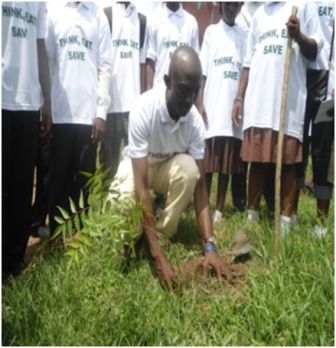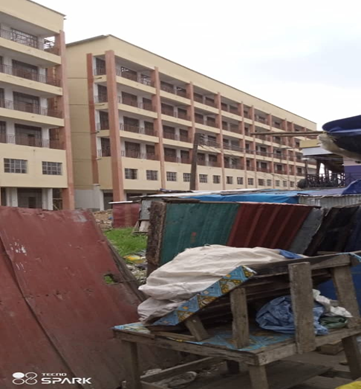Oil politics heats up in Liberia
When Liberia’s 14-year civil war was ending 10 years ago, citizens desperately wanted to live in a country where children could go to school safely, women are not molested, traders travel between cities, and so on. Today, with those goals mostly met, the country faces another challenge: that of how managing its abundant natural resources, particularly oil that was discovered in 2010.
With an impressive GDP growth of 10.8% in 2012, according to the World Bank, the oil discovery has triggered both excitement and fear. While oil could potentially accelerate the country’s development, Liberians also remember that mismanagement of its forestry, gold and diamonds resources was one of the causes of the last war. Therefore, they advise that all excitement be curtailed while the right policies are set.
It didn’t seem like the Liberian Senate heeded such an advice when it swiftly passed two oil bills in September, the first bill defined the role of the National Oil Company of Liberia (NOCAL) as a commercial entity and the second set the regulatory policies. But the bills hit a brick wall in the lower legislative chamber, the House of Representatives, where members raised alarm over the lack of extensive consultations with citizens before passage in the Senate.
The House members’ cautious approach appears in line with public thinking. Almost unanimously, Liberian civil society groups opposed the bills and criticised Mr. Robert Sirleaf, head of NOCAL and son of President Ellen Johnson Sirleaf, for lobbying senators to pass the two pieces of legislation.
Silas Siakor, head of the Sustainable Development Institute, a Liberian NGO that promotes judicious exploitation of natural resources, criticised Mr. Sirleaf for not consulting widely. “They [Mr. Sirleaf and his NOCA colleagues] were totally opposed to the idea of any kind of citizen input [to the bill].” Under pressure, Mr. Sirleaf resigned both his position as head of NOCAL and as an adviser to the President claiming that he had completed his mandate to reform the oil sector.
The House members and the civil society groups believe they have at least won the battle to have government open up the process of drafting the oil legislation. On its part, the government launched a nationwide public awareness campaign to explain the details in the bills. A key contention in one of the bills is over an allocation of 5% of oil proceeds to Liberians’ social welfare. During the campaign in Saniquellie, Nimba County, citizens demanded that such an allocation should be at least 10% of the proceeds.
They also rejected the president’s powers to appoint NOCAL board members, preferring the legislature to exercise such powers. They insisted that prospective oil companies be made to establish an oil refinery in the country to create local jobs for Liberians.
Analysts believe that after the initial storm, the government will likely make changes to the legislation to accommodate the citizens’ concerns. Global Witness, a watchdog group that campaigns against natural resource-related conflicts and corruption, says Liberia needs the right policies and could very well set them. The Liberian oil sector could potentially be “one of the best-run and best-governed sectors on the continent, if not in the world, in terms of developing countries with new oil finds,” according to Chloe Fussel, a campaigner for the organization.
By Kingsley Ighobor, Courtesy of Africa Renewal
Stay with Sierra Express Media, for your trusted place in news!
© 2014, https:. All rights reserved.





